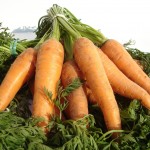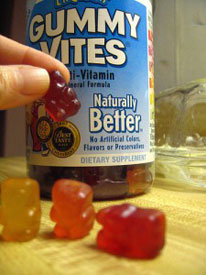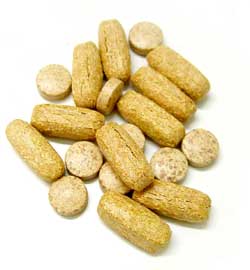Popular Reviews
- Shakeology Review
- Viritenz Review
- Isagenix Review
- Jenny Craig Review
- Protein World Review
- Paleo Diet Review
- Ideal Protein Review
- PhenQ Review
- Weight Watchers Review
- Pure Slim 1000 Review
- Alli Review
- Phen375 Review
- Leptigen Review
- It works Review
- The Thrive Diet Review
- Plexus Slim Review
- Almased Review
- Xyngular Review
- SlimQuick Review
- Relacore Review
- Lipozene Review
- ProbioSlim Review



 This week the
This week the 

 As a holistic health counselor and a relatively healthy eater (yes, I eat ice cream and can be seen eating french fries), I take supplements every day. The reason for this is because despite eating a healthy American diet, it is virtually impossible to get all the vitamins and nutrients our bodies need.
As a holistic health counselor and a relatively healthy eater (yes, I eat ice cream and can be seen eating french fries), I take supplements every day. The reason for this is because despite eating a healthy American diet, it is virtually impossible to get all the vitamins and nutrients our bodies need.
 Everywhere we go, we are assaulted by claims of “Enriched with Vitamin C!”, “Added B vitamins!”, “More Vitamin A than the leading brand!”, and so on. We all know that vitamins and minerals are essential to the proper balance and function of our bodies, but which supplements are vital and necessary to our health and well being, and which might we avoid, lest we end up with an expensive bathroom trip? Here are my top five choices for
Everywhere we go, we are assaulted by claims of “Enriched with Vitamin C!”, “Added B vitamins!”, “More Vitamin A than the leading brand!”, and so on. We all know that vitamins and minerals are essential to the proper balance and function of our bodies, but which supplements are vital and necessary to our health and well being, and which might we avoid, lest we end up with an expensive bathroom trip? Here are my top five choices for 

